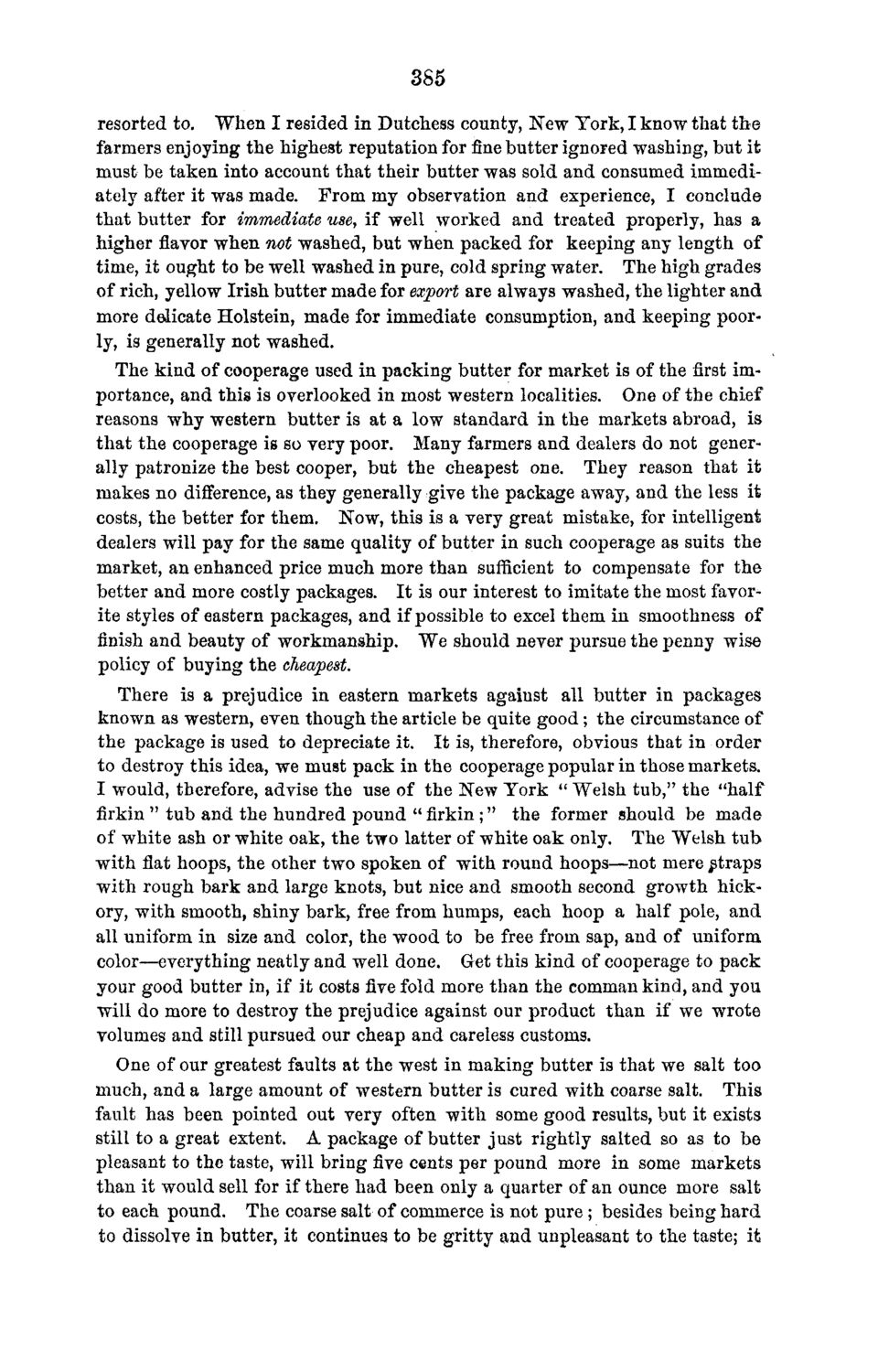| |
| |
Caption: Board of Trustees Minutes - 1870
This is a reduced-resolution page image for fast online browsing.

EXTRACTED TEXT FROM PAGE:
385 resorted to. When I resided in Dutchess county, New York, I know that the farmers enjoying the highest reputation for fine butter ignored washing, but it must be taken into account that their butter was sold and consumed immediately after it was made. From my observation and experience, I conclude that butter for immediate usey if well worked and treated properly, has a higher flavor when not washed, but when packed for keeping any length of time, it ought to be well washed in pure, cold spring water. The high grades of rich, yellow Irish butter made for export are always washed, the lighter and more delicate Holstein, made for immediate consumption, and keeping poorly, is generally not washed. The kind of cooperage used in packing butter for market is of the first importance, and this is overlooked in most western localities. One of the chief reasons why western butter is at a low standard in the markets abroad, is that the cooperage is so very poor. Many farmers and dealers do not generally patronize the best cooper, but the cheapest one. They reason that it makes no difference, as they generally give the package away, and the less it costs, the better for them. Now, this is a very great mistake, for intelligent dealers will pay for the same quality of butter in such cooperage as suits the market, an enhanced price much more than sufficient to compensate for the better and more costly packages. It is our interest to imitate the most favorite styles of eastern packages, and if possible to excel them in smoothness of finish and beauty of workmanship. We should never pursue the penny wise policy of buying the cheapest. There is a prejudice in eastern markets against all butter in packages known as western, even though the article be quite good; the circumstance of the package is used to depreciate it. It is, therefore, obvious that in order to destroy this idea, we must pack in the cooperage popular in those markets. I would, therefore, advise the use of the New York " Welsh tub," the "half firkin " tub and the hundred pound " firkin ;" the former should be made of white ash or white oak, the two latter of white oak only. The Welsh tub with flat hoops, the other two spoken of with round hoops—not mere ptraps with rough bark and large knots, but nice and smooth second growth hickory, with smooth, shiny bark, free from humps, each hoop a half pole, and all uniform in size and color, the wood to be free from sap, and of uniform color—everything neatly and well done. Get this kind of cooperage to pack your good butter in, if it costs five fold more than the comman kind, and you will do more to destroy the prejudice against our product than if we wrote volumes and still pursued our cheap and careless customs. One of our greatest faults at the west in making butter is that we salt too much, and a large amount of western butter is cured with coarse salt. This fault has been pointed out very often with some good results, but it exists still to a great extent. A package of butter just rightly salted so as to be pleasant to the taste, will bring five cents per pound more in some markets than it would sell for if there had been only a quarter of an ounce more salt to each pound. The coarse salt of commerce is not pure; besides being hard to dissolve in butter, it continues to be gritty and unpleasant to the taste; it
| |